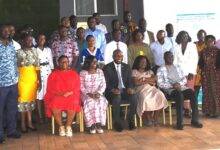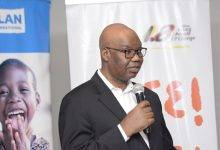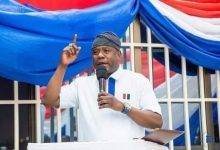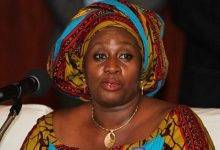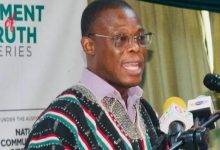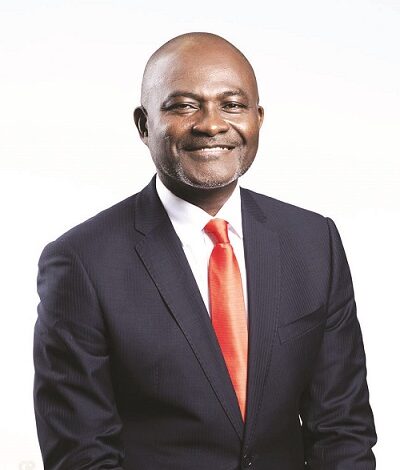
On March 6, 1957, when the great Osagyefo Dr Kwame Nkrumah declared Ghana’s independence from the British Colonialists, many were those who were of high hopes, believing that a new nation with the capacity to restore the true African personality had been birthed.
In his immutable voice, and at his oratory best, Kwame Nkrumah declared at the old Polo grounds that “At long last, the battle has ended! And thus, Ghana, our beloved country is free forever!”
The clarion call was loud and clear, reverberating across the four corners of the world. Out of sheer optimism, Osagyefo made a case for the new African, believing, that Ghana would be the torchbearer in defining the true African personality and what it stood for.
Basking in the euphoria that had engulfed the old Polo grounds, he said, “And, as I pointed out… from now on, today, we must change our attitudes and our minds.
We must realise that from now on, we are no longer a colonial, but free and independent people. But also, as I pointed out, that also entails hard work.
That new Africa is ready to fight his own battles and show that after all, the black man is capable of managing his own affairs.
We are going to demonstrate to the world, to the other nations, that we are prepared to lay our foundation – our own African personality.”
With an unwavering belief, Osagyefo saw the African Personality beyond just the shores of Ghana and this was affirmed when he declared that, “We have won the battle and again let us rededicate ourselves … “OUR INDEPENDENCE IS MEANINGLESS UNLESS IT IS LINKED UP WITH THE TOTAL LIBERATION OF AFRICA.”
The optimism was great and the desire to see the African progression was real, however, all that began to fizzle out when the reality dawned on the new independent Ghana that the challenges of its development were more than just the mere presence of the whiteman.
Today, Ghana is a pale shadow of what was envisaged by the forebears. Poverty, squalor and deprivation seem to be its lot.
Even though Kwame Nkrumah was not oblivious of the fact that building and reshaping of the country’s destiny wasn’t going to be easy, he may have underestimated the magnitude of the challenge.
Cronyism, tribalism, ethnocentrism, nepotism, greed, hatred, jealousy, indiscipline, rumour mongering, thievery, corruption and chicanery were the underestimated monsters that invariably devoured Osagyefo and are the monsters whose tentacles continue to devour the Ghanaian society today.
These monsters have stood in every step of the way to building an enviable African personality and have made sure that it serves as the stumbling block for the country’s forward march.
From 1957 to date, Ghana has been devoured by these monsters. Indeed, there is no gainsaying that the underdevelopment of the country is largely as a result of these monsters whose tentacles are found in every nook and cranny of the society.
Sadly enough, political leadership has failed in dealing with these monsters decisively, and in a way, have become agents in devouring the society.
If leadership is cause, and all others, effect, then the major problem in dealing with these monsters is nothing but the lack of leadership.
Nearly 70years after independence, Ghana is yet to have the right political leader with the right temperament to galvanize the people towards defeating these monsters who continue to block our progress.
Perhaps, the closest we came as a nation in dealing with these monsters, was under the regime of the Provisional National Defense Council (PNDC) headed by the late Jerry John Rawlings, but alas, the battle was lost and the reasons were not farfetched- majority of the leaders lacked the time tested principles of Patriotism, Honesty and Discipline.
It is therefore refreshing that the Member of Parliament for the Assin Central Constituency is advocating a new style of leadership anchored on the principles of PHD.
The need for Ghanaians to imbibe these principles have become more imperative than ever before and there is no gainsaying that until these principles become a culture in Ghana, the desired development for the country would continue to prove elusive.
But the question that one needs to ask is, what is this PHD principle and how does it hold the key to the country’s development?
The PHD principle as espoused is anchored on the need for Patriotism, Honesty and Discipline. Patriotism constitutes a very important variable in nation building and is defined as the selfless passion of love for one’s country.
It is a virtue that imbues in people the sense of loyalty to defend one’s country even at the peril of their lives with or without any tangible motivation.
Similarly, Honesty is a human virtue that depicts sincerity and straightforwardness. A people who exhibit these tendencies act with self-conscientiousness and discharge their duties in nation building without cutting corners.
This ingredient without mincing words is missing in the Ghana Society today and any attempt to ensure transformation would remain fruitless unless it is underpinned by it.
Like Patriotism and Honesty, Discipline comes from the Latin word “Disciplina” which translates as loosely as living by the rules. It is dictated by self-control and unwavering desire to doing the right thing.
Indeed, the chaos on our streets, settlement patterns and lack of productivity are but a symptom the levels of indiscipline that has engulfed our society.
A combination of these virtues are indeed what is missing from our equation of leadership and drumming it home now could never have come at a better time than this.
Examples aboundto show that societies that emerged as developed countries in the mid-20th century, did so with little reliance on their natural resources.
Singapore which is a shining example of the Asian Tigers is one country whose success story we are told depended on the leadership of PHD provided by Lee Kuan Yew.
Today, it has become fashionable for the average Ghanaian as well as members of the so called middle class in society to cite Paul Kegame of Rwanda as the model of leadership required by Africa for its forward movement.
Not only has Kegame demonstrated that leadership is about being decisive and having the tenacity to right the wrongs of society, but has also shown that it requires, patriotism, honesty and discipline to drive the citizens on the path to progress.
Rwanda which was plunged into a tribal conflict only rivaled by what took place in Chechnya, today is the toast of Africa.
Even though not endowed with the volume of natural resources of other African countries like Ghana and Nigeria, its leader, Paul Kegame has demonstrated that leadership is what matters most.
It is therefore important for Ghanaians to begin to interrogate the PHD principles as espoused by Mr Agyapong and assess its merits for national development.
Indeed, Ghanaians must begin to question themselves on why for more than six decades after independence, the country continues to lag behind?
This is not to say that, our leaders have not over the years tried to deal with what have become our monsters.
Perhaps, what has resulted in their failure is the lack of PHD and Ghanaians must be interested in that.
Beyond the rhetoric, Ghanaians must go beyond the suit wearing images and fine-faced politicians and look out for a leader who has carved the reputation for standing for what he or she believes in no matter what.
Sticking my neck out, I would boldly say the time has come for Ghanaians to interrogate the underlying philosophy of the PHD principle and the personality espousing it.
It is important for Ghanaians to come to terms with the fact that extraordinary circumstances require extraordinary leadership.
Ghanaians can’t continue to repeat same old faced politicians with same old leadership styles and expect new results.
This is the time to give PHD a thought!
By Asks Cliff Ekuful

